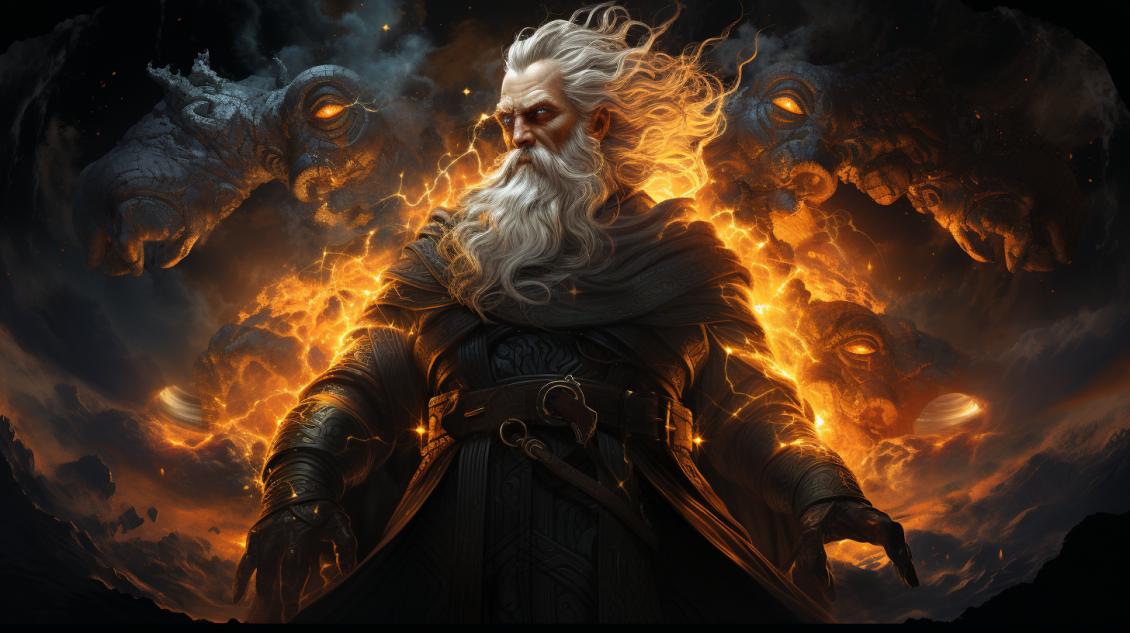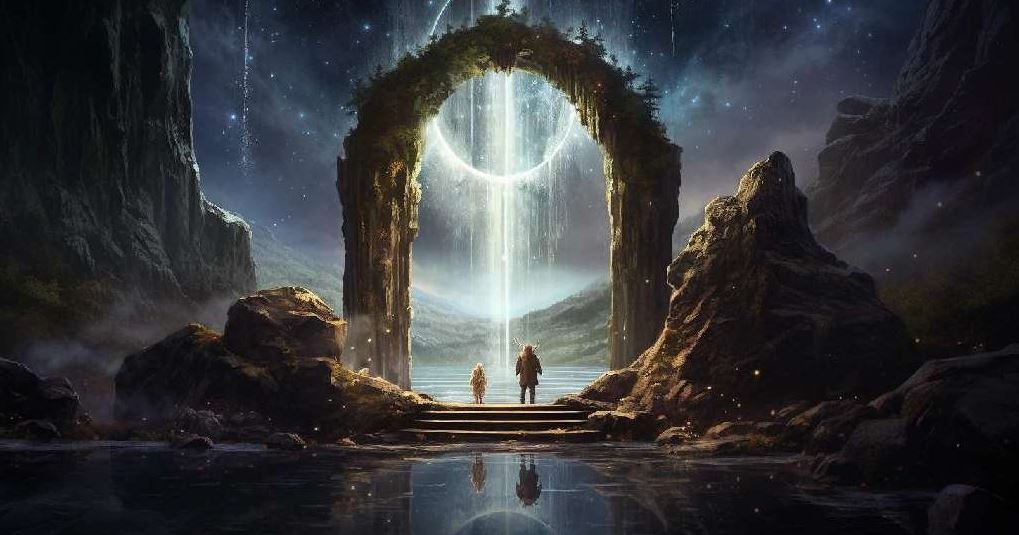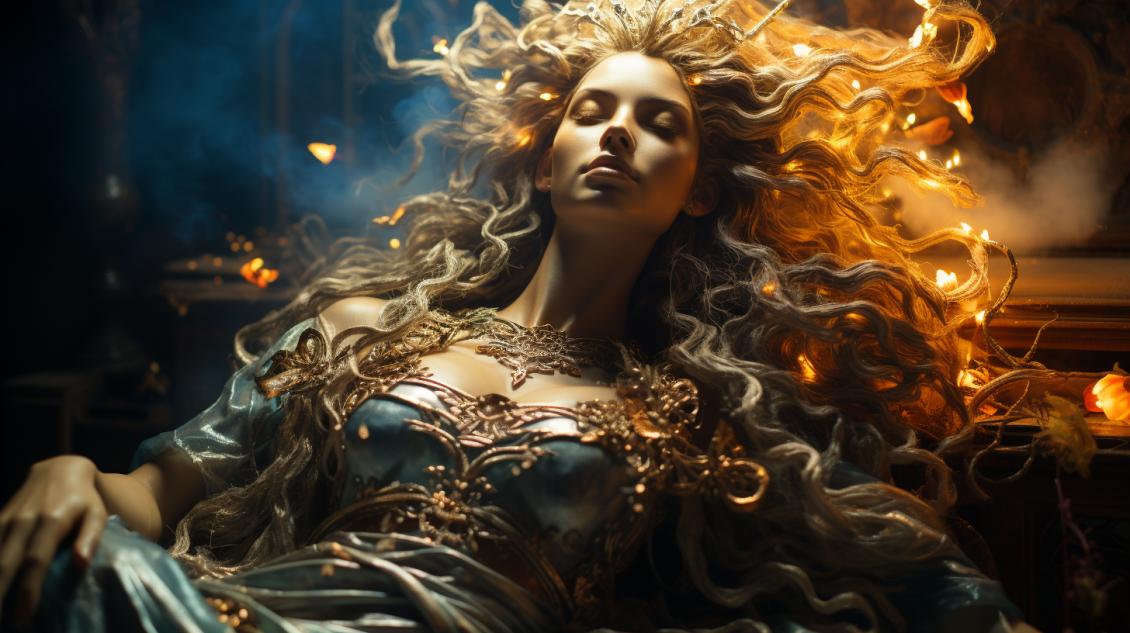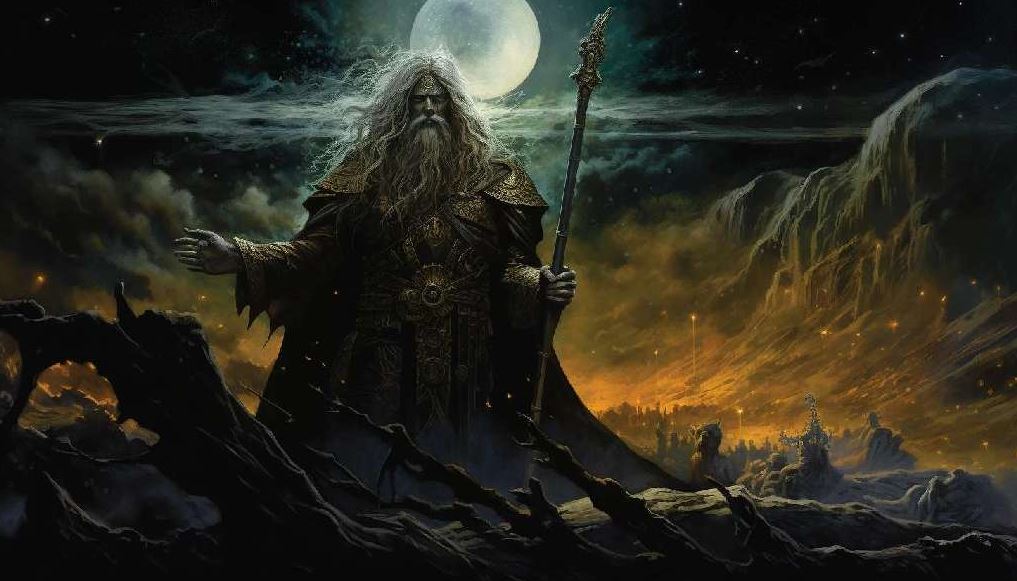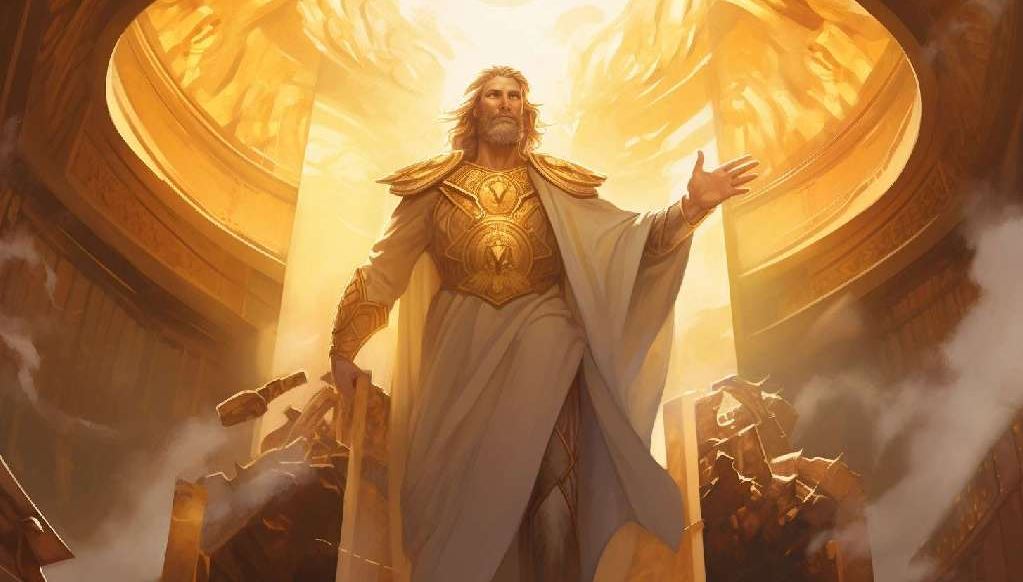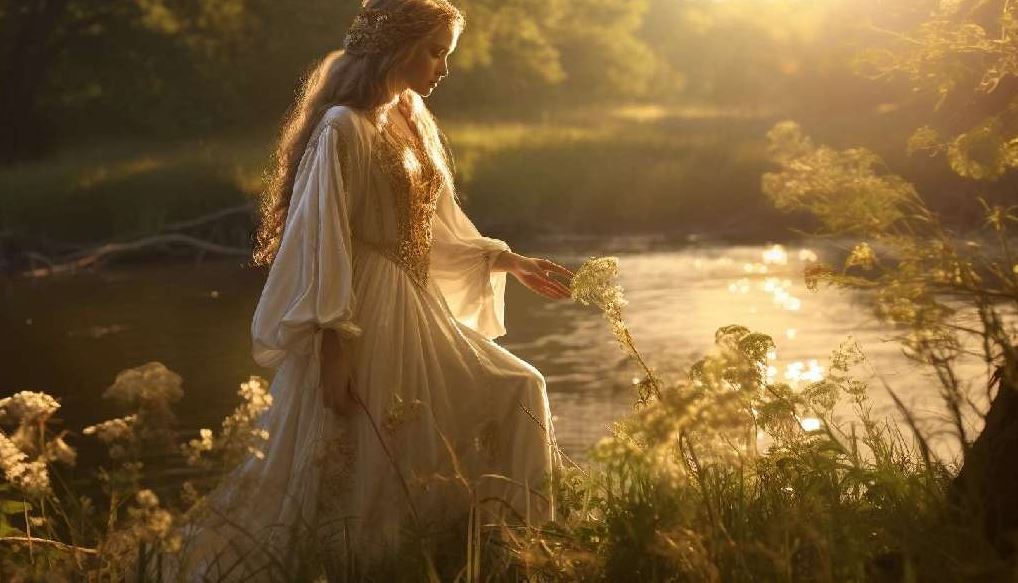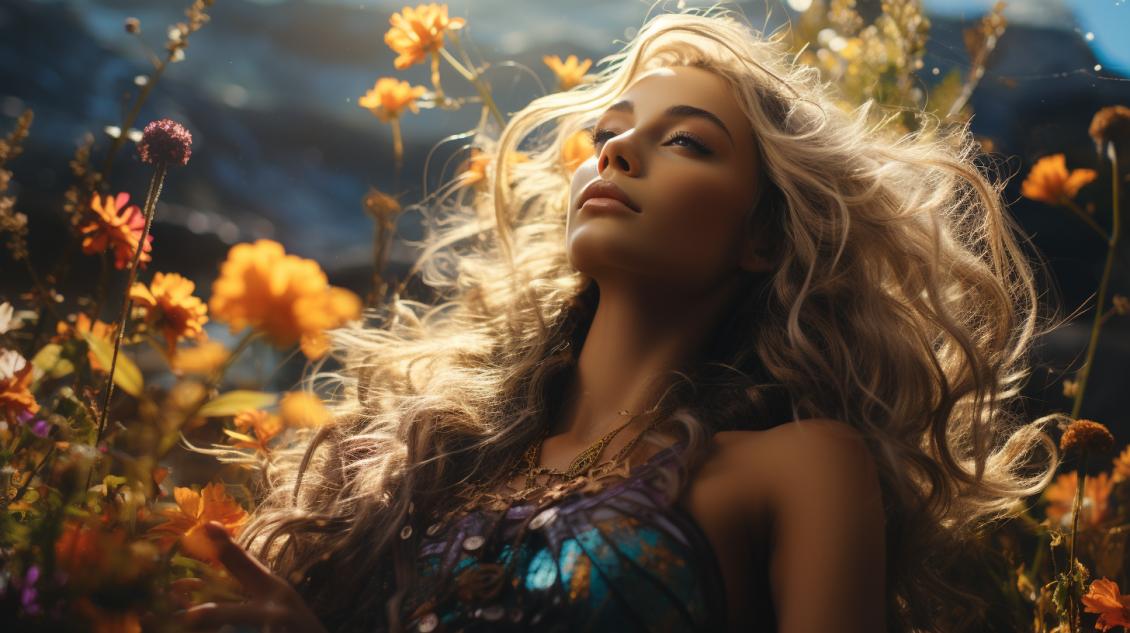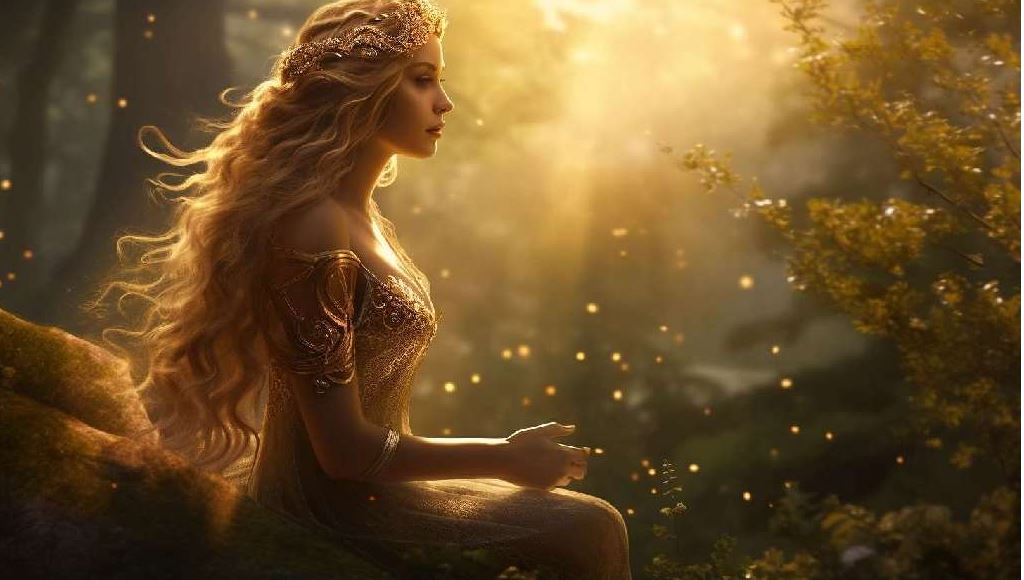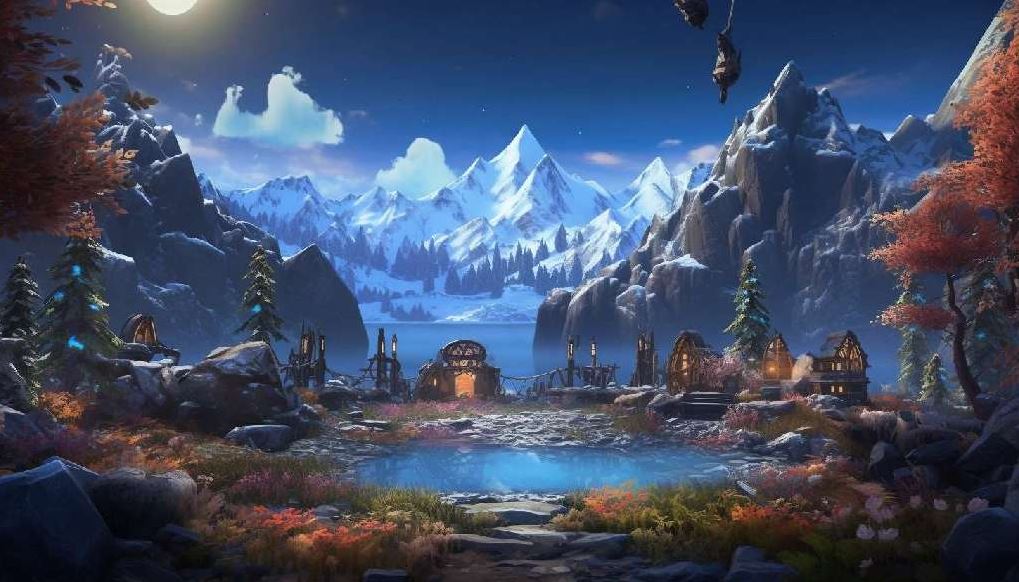Norse God Buri: The Creator and Ancestor of Aesir in Norse Mythology
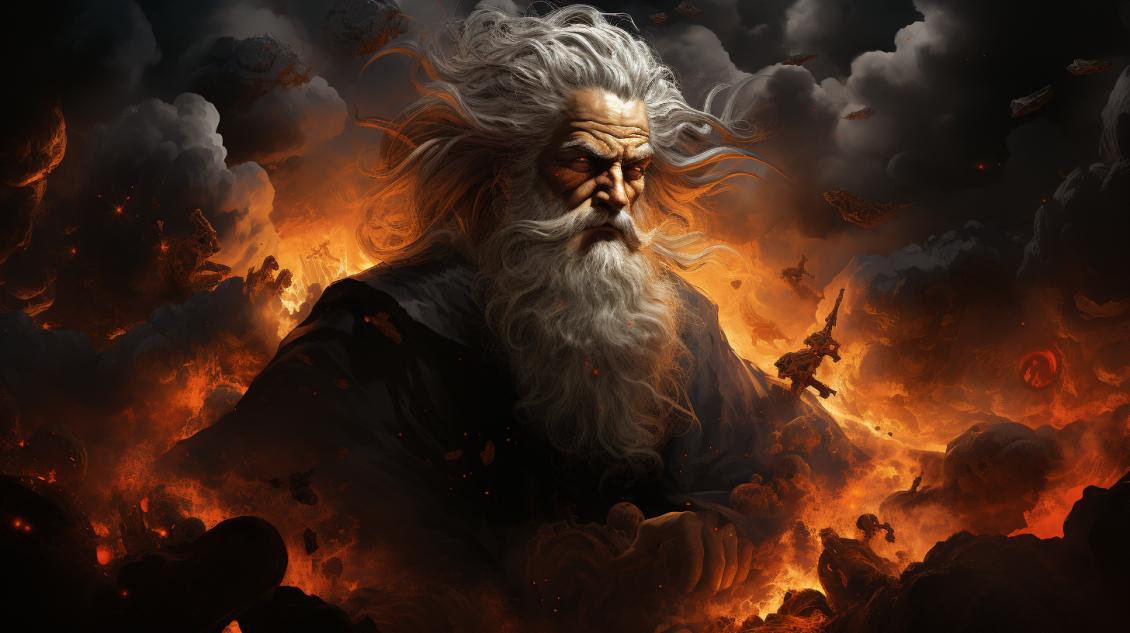
Norse God Buri holds a significant place in Norse mythology, playing a pivotal role in the creation of the world and the origin of the gods. Considered the ancestor of Aesir, Buri’s name translates to “the producer/father” in Old Norse.
According to legend, Buri was formed when the cow Audhumbla licked him from a salty ice block in the plains of Niflheim. Little is known about Buri beyond his important role in the existence of the Aesir.
This article delves into the intriguing story of Norse God Buri, exploring his lineage, creation, and divine significance.
The Origin and Importance of Norse God Buri
The Role of Buri in Norse Mythology
Buri holds a significant role in Norse mythology, particularly as a foundational figure in the creation of the world and the emergence of the gods. As one of the earliest beings to exist, Buri’s actions and lineage shape the course of Norse cosmology.
Understanding his role provides insights into the origins and development of the divine pantheon.
Buri as the Ancestor of Aesir
Buri’s importance extends beyond his immediate existence. He serves as the ancestral figure to the Aesir gods, including renowned deities such as Odin, Thor, and Freya. Buri’s lineage connects him directly to the divine beings worshipped by the Norse people, emphasizing his status as a revered progenitor figure.
Exploring his relationship to the Aesir sheds light on the divine hierarchy and the influence of familial ties in Norse mythology.
Buri’s Creation Story
The tale of Buri’s creation offers a captivating narrative on his origins. According to ancient texts, Buri comes into existence when the cow named Audhumbla licks him free from a salty ice block in the plains of Niflheim.
Faced with limited sustenance options in the barren lands, Buri relies on Audhumbla’s milk for nourishment. This enigmatic story of Buri’s emergence speaks to the mysterious and fantastical nature of Norse mythology, highlighting the unique circumstances surrounding his birth and subsequent role in the divine realm.
Buri and the Creation of the World
When exploring the origins of Norse God Buri, we delve into the fascinating mythology surrounding the creation of the world. This section sheds light on the intriguing roles of Aurgelmir, Buri’s connection to Aurgelmir’s blood, and the creation of the Earth from Aurgelmir’s body.
The Role of Aurgelmir in Mythology
Aurgelmir, the giant of ice, plays a significant role in Norse mythology as the starting point for the world’s creation. According to Germanic mythology, the world emerged when Aurgelmir appeared. His existence sets the stage for the subsequent events involving Buri and the gods.
Buri’s Connection to Aurgelmir’s Blood
In a dramatic turn of events, the gods rise up against Aurgelmir, slaying him and causing a massive outpouring of his blood. This blood engulfs and drowns all the ice giants, with the exception of one survivor.
This event not only signifies the end of Aurgelmir but also sets the stage for the birthing of new life, including Buri.
The Creation of the Earth from Aurgelmir’s Body
The aftermath of Aurgelmir’s demise brings about a unique phenomenon. The gods gather his lifeless body and place it in a void called Ginnungagap. Using the remains of this fallen giant, they go on to create the Earth.
Thus, the very substance of Aurgelmir contributes to the shaping of the physical realm that all beings inhabit.
- The gods fashion mountains and valleys from the giant’s bones, forming the majestic landscapes of the Earth.
- Rivers and lakes emerge from Aurgelmir’s blood, contributing to the natural waterways of the world.
- The soil that sustains life itself originates from the flesh of this fallen titan.
Buri’s Indirect Role in Creation
While Buri’s direct involvement in the creation process remains unclear, his significance as the progenitor of Odin and the other gods cannot be overstated.
As the grandparent of the powerful Aesir, Buri’s lineage shapes the divine hierarchy and paves the way for the existence of mighty deities such as Odin, Vili, and Vé.
In conclusion, the intertwining of Aurgelmir, Buri, and the creation of the world reveals the intricate mythology that underlies Norse cosmogony. The bloodshed and the transformation of the fallen giant’s body highlight the divine power wielded by the gods, as well as the essential role played by Buri in the grand tapestry of Norse mythology.
Buri: The Father Figure and Divine Being
The representation of Buri as the Creator holds great significance in Norse mythology. Though not as well-known as Odin or other gods, Buri is revered as the progenitor of all gods and the divine force behind the existence of the cosmos.
Buri’s Representation as the Creator
In Norse mythology, Buri is often characterized as the supreme deity responsible for bringing all things into being. His name, which translates to “creator,” “son,” or “father,” reflects his role in the divine pantheon.
According to Snorri Sturluson’s Prose Edda, Buri emerges from a saltstone lick by the cow Audhumla, nourishing himself with her milk amidst the void of Niflheim.
Buri’s Significance in Norse Pantheon
As the father figure of the gods, Buri holds a position of profound importance in Norse mythology. His lineage as the ancestor of Aesir establishes his authority and influence over the divine realm.
Buri’s existence becomes the foundation upon which the entire pantheon of gods is built, shaping their identities and mythological roles.
Comparisons to Other Gods and Figures
While Buri may not receive as much attention as Odin or other well-known Norse gods, his divine nature and role as the Creator draw intriguing comparisons to other deities. His connection to Aurgelmir, the ice giant, echoes the theme of cosmic creation and the struggle for dominance within the mythological narrative.
Exploring these connections enriches our understanding of Buri’s place within the Norse pantheon.
- Comparisons to Odin, the Allfather
- Similarities with other creator deities in world mythology
- Buri’s significance in relation to other gods and prominent figures
….

